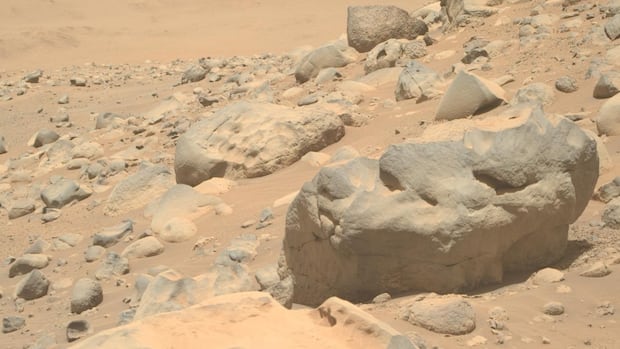
With uncertainty round lifestyles on Mars, human journeys be offering an ethical catch 22 situation
The first step by a human on the surface of Mars will essentially move worldly microbes on the martian soil. Scientists are rapidly worried about what the implications will be in contaminating the second planet.
A recent study, Journal published in microbiome this monthAnalyzed clean rooms at the Kennedy Space Center, where Mars Landers was sterilized before the launch. The team found 26 species of novel bacteria which could potentially survive the rigid environment of space.
These organisms contain genes that increase the repair of DNA, toxic harmful molecules, and increase metabolism, which all make them more harmful.
NASA Great length goes To ensure any spacecraft that departs for Mars, these ultra-crown rooms are sterilized and are sealed in the capsule before launch to prevent cross-pleasures between the two planets.
We do not know that any of these microbes have actually reached Mars because we have no way to examine the spacecraft while being on the red planet.

The vacuum of space with solar and cosmic radiation, the possibility of microbes that avoid excessive temperature vacuum, are thin, although there was a case where the Earth’s microbes seemed to survive on the moon for years.
In 1969, the crew of Apollo 12 reached close to a robotic investigation, called Surveyor 3 that came to the lunar surface three years ago. A spacecrafts removed a television camera, electrical cable and a sample scoop, which was returned to Earth to study long -term effects of space contact.
For everyone’s surprise, a common bacteria, Streptococcus mitisThe camera was found inside the lens. This harmless organism, which was usually found in the mouth and throat of humans, was believed to have been on the spacecraft before the launch because the surveyor was not sterilized.
One later study In 1998, NASA suggested that bacteria could come from contamination due to poor procedures after the lens is returned to Earth. But there is still a possibility that germs may survive in space.
Sterilizing a robotic spacecraft to prevent contamination is one thing, but it is impossible for humans to sterilize. We are largely made of bacteria, from head to toe and internally covered in microbes, continuously shed them with dead skin and other detritus. And those creatures will travel to Mars with us.
Look Saturday cleaning day at space station: https://www.youtube.com/watch?v=ZIWTJDSZNS
New species of bacteria Got Astronhers inside the Tiangong -1 space station in China and at the International Space Station are constantly cleaning the walls to prevent the construction of germs in that seal environment. It is evidence that bacteria can avoid the high radiation environment of a space habitat.
This means that any human boot that touches the martian soil will bring organisms from inside the spacecraft or colony. Can those insects live longer in the martian environment, it is to be determined, but the more serious issue is what they will do for any indigenous organisms that can already live on Mars.
Curiosity, one of the rovers is currently driving on the red planet, collecting soil samples from different areas and sealing them in tubes to collect them and has returned to Earth A future sample refund missionThis idea is to seek signs of current life or past life using powerful devices in Earth laboratories.
But NASA Proposal to cancel sample returnsSo we would not know for some time whether minor martians are present in the soil.

Mars shows signs of a warm and wet past, where the planet was once covered with lakes, rivers and oceans. It was during a time, about three billion years ago, when life was emerging on earth. So far, there has been no sign of life on Mars, but we are only looking at the surface, not underground where water can be present.
Nevertheless, there is talk of sending people to Mars, even a Mangal Colony is established. But is it intelligent before we determine whether the planet has life or not?
In Classic Science Fiction Story, war of the Worlds By HG Wales, Martians come with invincible machines on Earth that wreak havoc on cities. Our most powerful weapons are useless against their incredible power. But after all, the invaders are taken down by the most little creature, common cold, for which they had no resistance.
In real life, tables are replaced. We are invaders from the earth who are bringing our machines and foreign organisms. If we search for Martian life, should we go there?